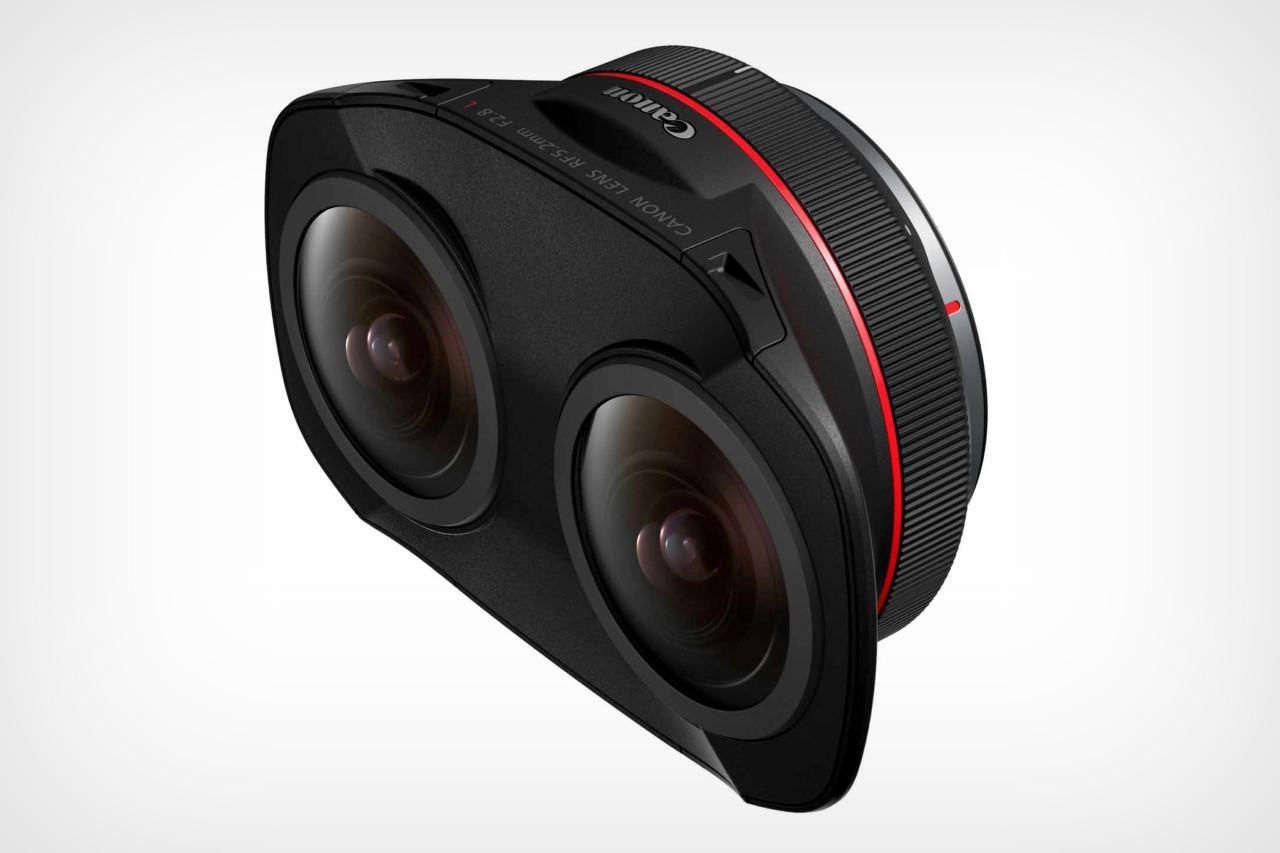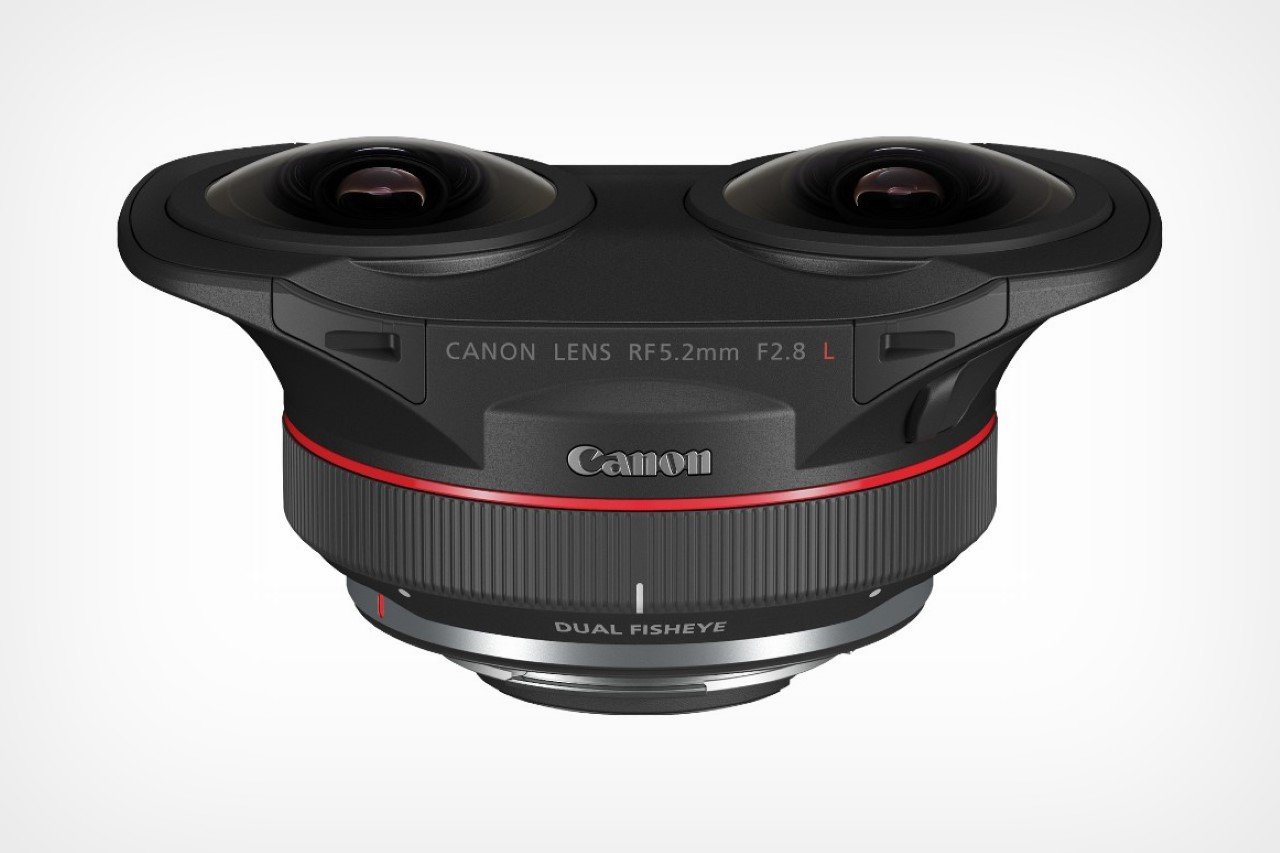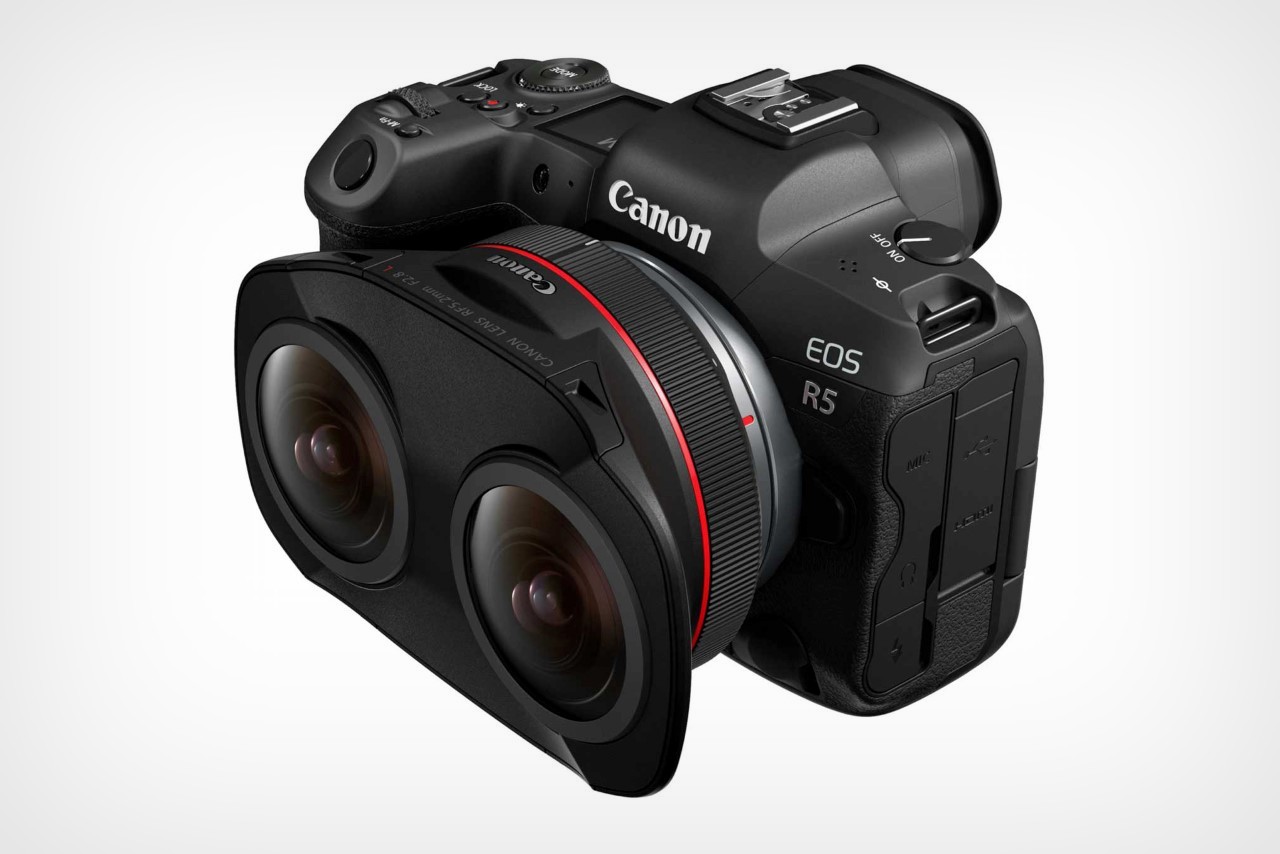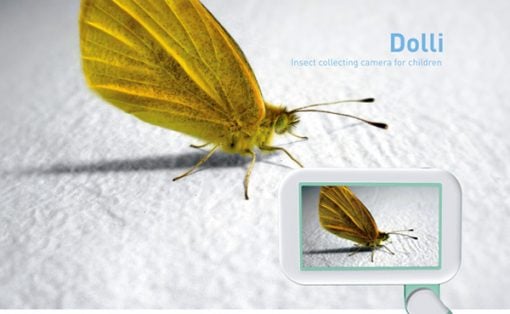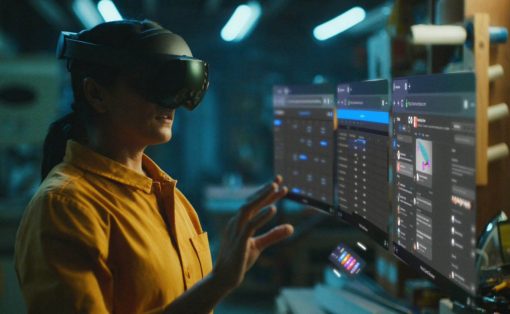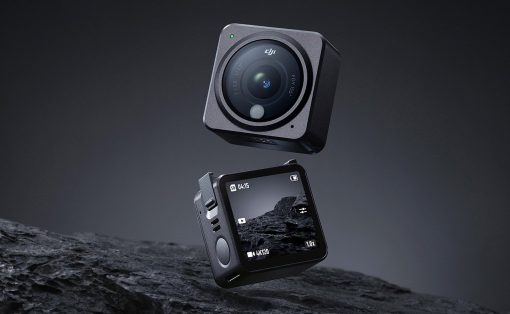“A powerful 3D lens for an already powerful 2D camera.”
I bet you’re just as baffled as I am looking at Canon’s new RF5.2mm F2.8 L Dual Fisheye Lens. It almost looks anthropomorphic, with the way the two eyes stare at you, but in fact, what’s really marvelous is where Canon seems to be going with their cameras. DSLRs and Mirrorless cameras are already some of the most powerful shooters out there, and rather than ditching that entire ecosystem of cameras to move to newer camera types – like drones and AR/VR cameras, Canon has just embraced good old-fashioned innovation instead, with a newfangled lens that is compatible with their existing EOS range of cameras. The lens, when paired with the company’s 1.5.0 firmware update, enables the humble yet capable 2D camera to shoot SBS 3D content. Pair the lens with the EOS R5 mirrorless camera and suddenly you can perform high-resolution video recording at up to 8K DCI 30p and 4K DCI 60p.
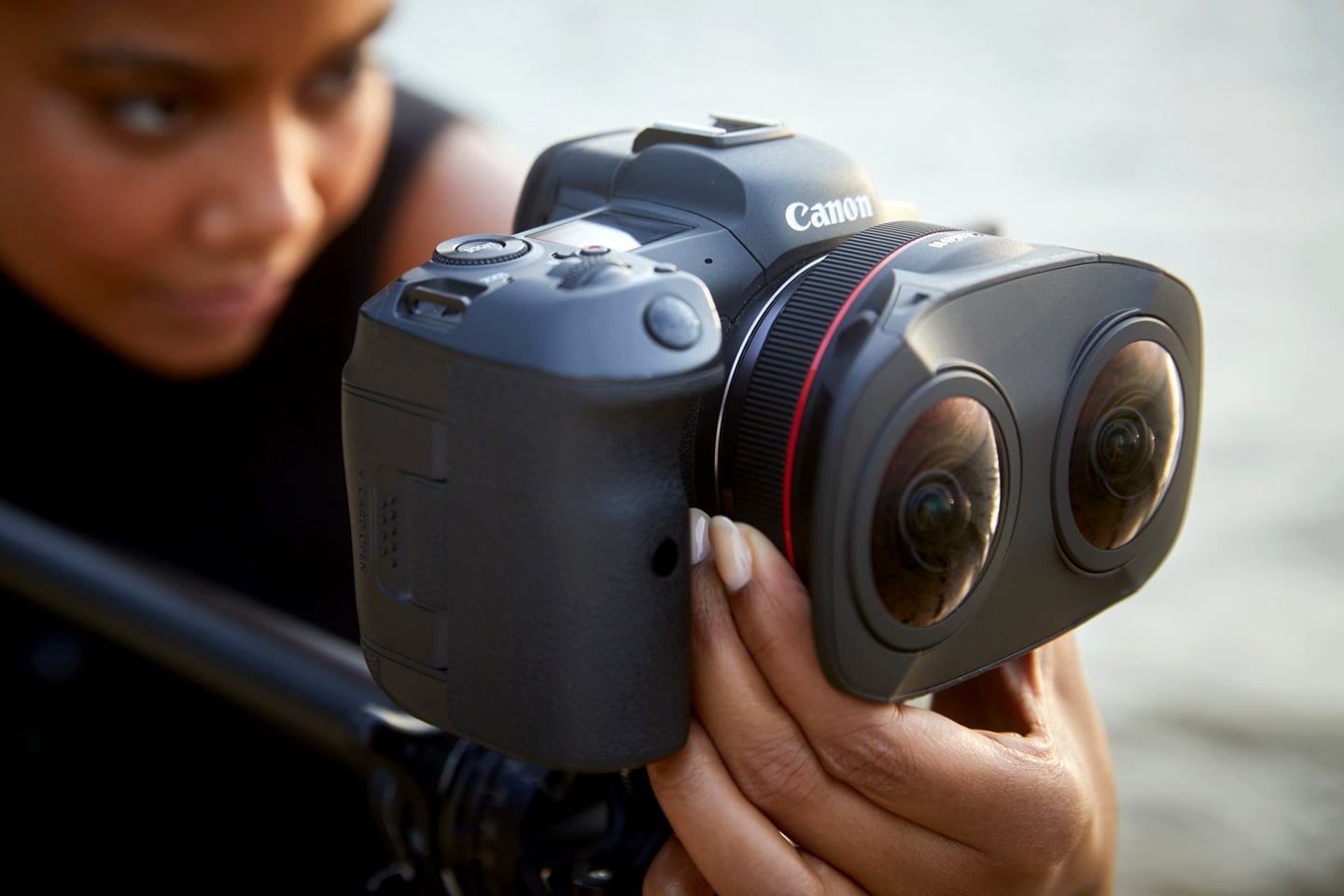
The bizarre yet beautiful lens unlocks an absolutely new dimension to photography. Just pop it onto the EOS R5 and the lenses use a complex internal optical arrangement to record SBS content on a single full-frame image sensor. When paired with the right firmware, the video content automatically gets split, synced, stitched, and turned into 3D VR videos that can directly be exported using Canon’s own software.
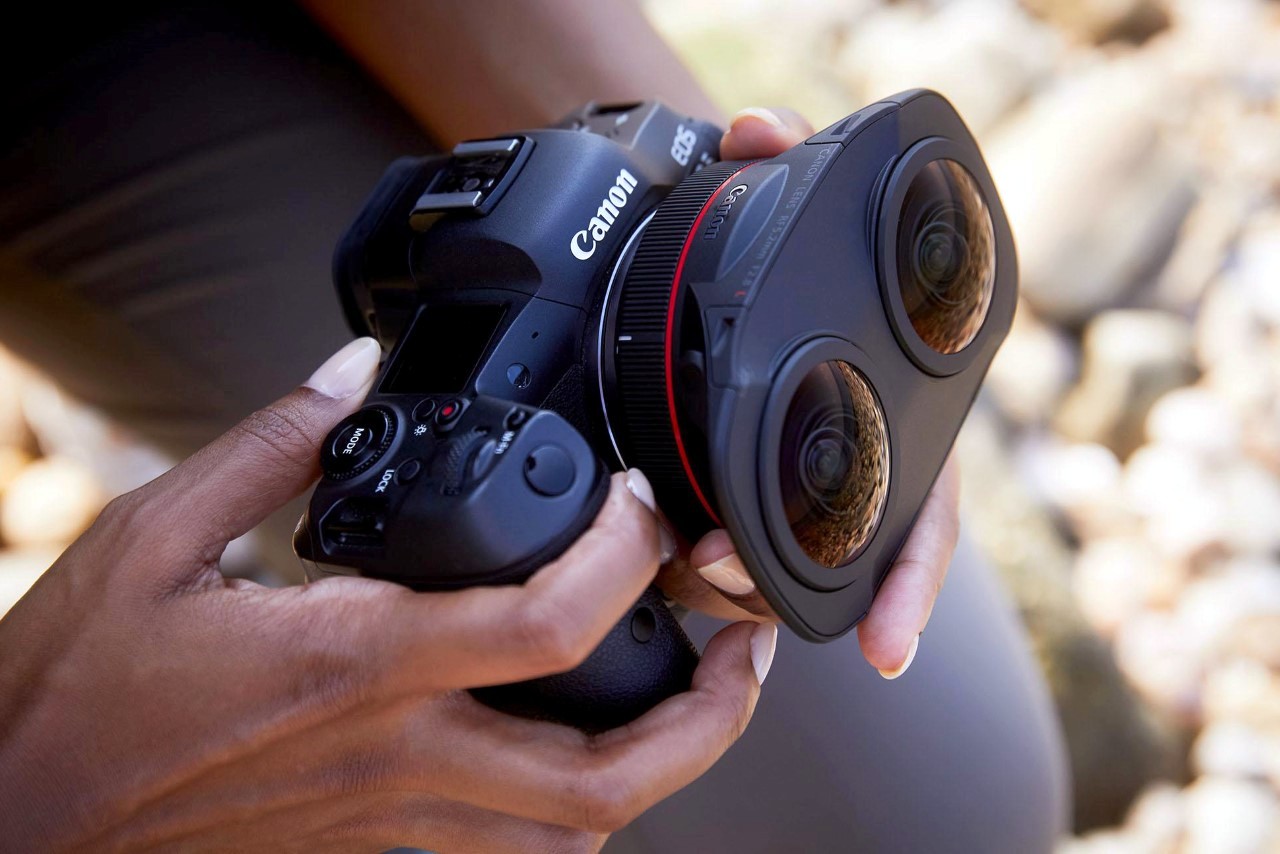
The two lenses offer 190° field of view, and are spaced a precise 60mm apart to resemble the pupillary distance in humans, making the VR content look believable and have just the right amount of parallax too. Focusing for both the lenses is controlled by a single ring, although minor tweaks to the focus of individual lenses can be done using hidden adjustment dials on the left and right-hand sides of the lens body.
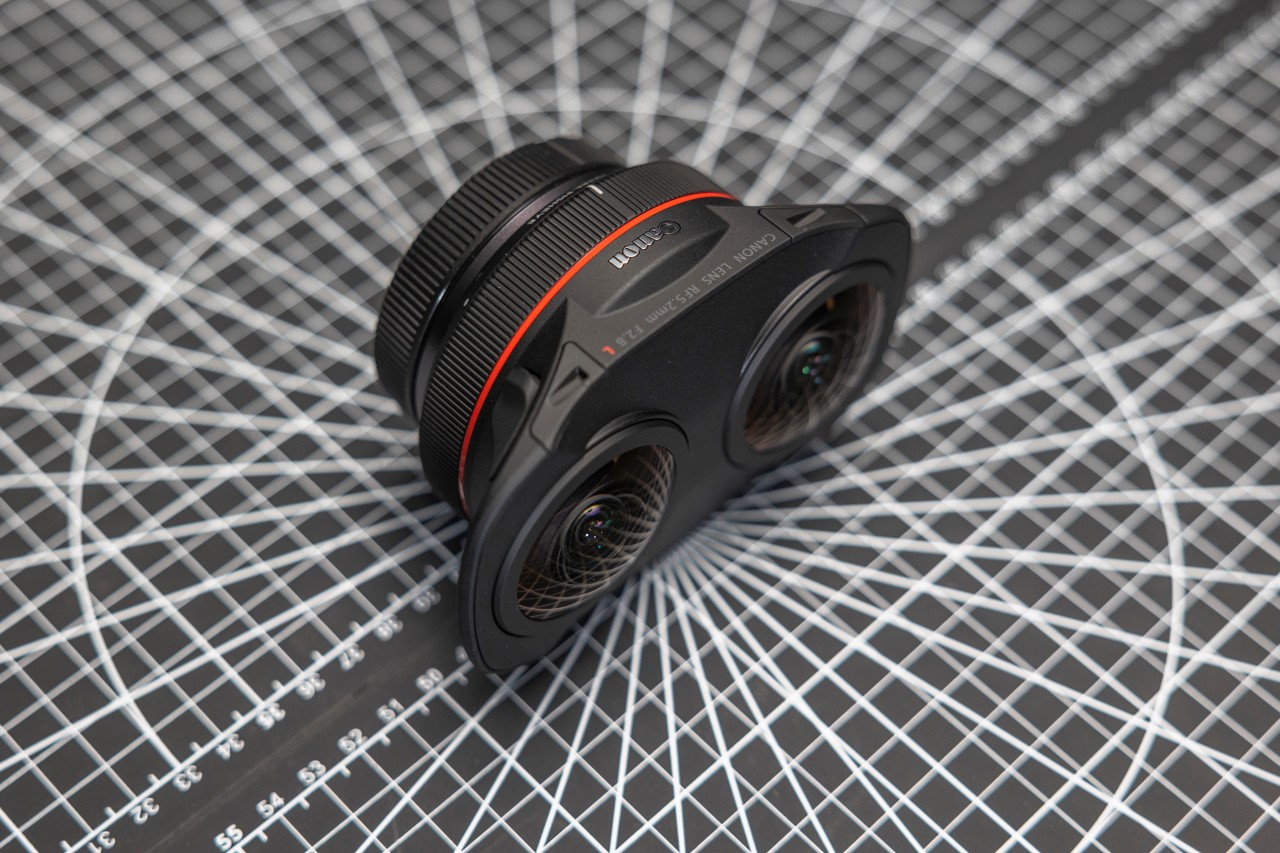
It’s low-key marvelous what the RF5.2mm F2.8 L Dual Fisheye Lens does not just for Canon, but for photography in general. It shouldn’t be long before other companies like Nikon, Sony, and Fujifilm begin introducing lenses that allow you to record two channels of video content using a single sensor. Arguably, the sensor would have to be big enough to fit both the channels, and to make sure your videos are high-resolution enough, but what Canon’s unleashed on the camera and VR world is just the beginning. That being said, this lens was designed for a special subset of users (with deep pockets) and doesn’t come cheap. The dual fisheye VR lens sports a hefty price tag of US$1,999, and is set to go on sale in December this year. That’s excluding the fact that you also need a $3,899.00 EOS R5 camera to match.
